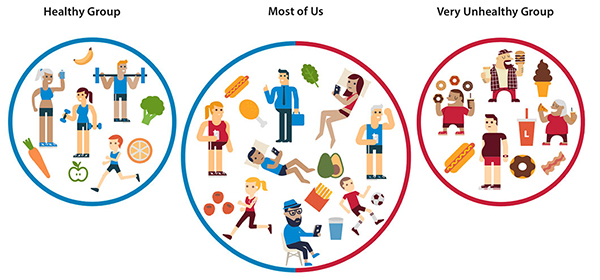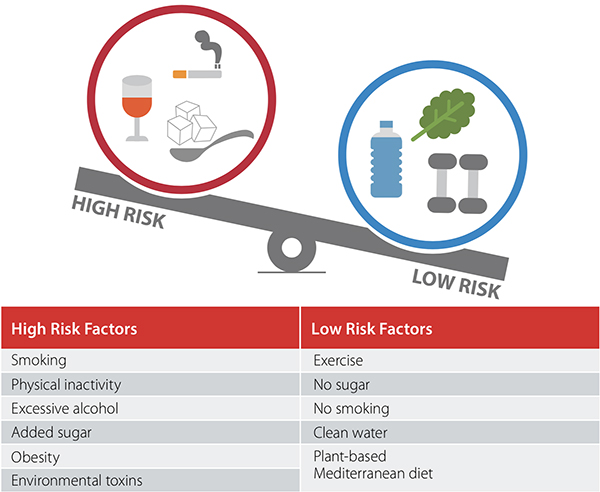Are You in Control of Your Cardiometabolic Health?

Cardiovascular disease generally refers to conditions involving narrowed or blocked blood vessels that can lead to heart attack, chest pain or stroke. Given the prevalence and severity of these conditions, it is no surprise that reducing cardiovascular risk is the #1 question on patients’ minds.
Given the prevalence and severity of cardiovascular disease, it is no surprise that the number one question patients ask their health care practitioners is, “How do I reduce my risk for cardiovascular disease?”
Oftentimes, the answer to this question is a prescription: a statin for cholesterol, beta blocker for blood pressure or insulin for blood sugar. This style of treatment is called a polypharmacy approach, in that health care practitioners prescribe multiple drugs to help manage certain numbers.
Unfortunately, this approach won’t attack the root cause or consider why these numbers are elevated, leaving patients feeling confused and helpless.
A functional approach to cardiometabolic treatment breaks the polypharmacy mold and puts you in control of your cardiometabolic risk. This approach uses lifestyle medicine to attack the root cause of elevated numbers while considering the connections between them.
We can provide you with a comprehensive and targeted solution for improving cardiometabolic health that looks beyond the numbers and considers the why. Finally, you will have an answer to that number one question and take back control of your health!
Cardiometabolic risk is a collection of factors that help determine a patient’s overall risk for cardiometabolic disease.
Regardless of your risk level, the recommended course of treatment is often focused on drug therapies aimed at reducing an individual lab value (e.g., a statin for high LDL). This type of management is a reactive way of helping you lower your risk, but it clearly does not attack the underlying cause of the problem.
An abnormal lab value is a signal of multiple levels of body functions failing; therefore, simply addressing the lab value will not solve the many layers of dysfunction that continue to persist.
In order to truly improve risk, we must be proactive and attack the underlying cause of the problem. The cause of increased cardiometabolic risk is often a decreased physiological resilience and metabolic reserve caused by chronic inflammation and insulin resistance stemming from poor lifestyle choices such as obesity, physical inactivity, stress, environmental factors, and nutrient deficiencies.

We all have an aunt or uncle who lives a very unhealthy lifestyle and still lived to be 95 years old. On the flip side, we all know someone who practiced a very healthy lifestyle, but unfortunately was diagnosed with cardiometabolic disease before the age of 60.
These two groups of people are anomalies, and they represent a very small portion of the general population. Even though your genes play a role in disease progression, they are not the deciding factor for a majority of the population.

Your risk for cardiometabolic disease takes years to develop. The cumulative burden of years of poor choices eventually add up to create your risk or health profile. This is called the metabolic continuum. If you’ve made some unhealthy choices over your lifetime, you can change your course. However, if you take no action, the risk for disease will snowball as the years progress.
Our team will help you understand where you fall on the metabolic continuum, and how you can take steps to improve your trajectory as needed.
Chronic inflammation is commonly the cause of your cardiometabolic risk. If unaddressed and unstopped, your risk can then turn into full cardiometabolic disease. Luckily, your risk setting can be significantly improved by using the power of lifestyle medicine to help lower and control chronic inflammation.

Our CM Vitals Program is a nutritional and lifestyle program to assist you in understanding the importance of the cardiovascular system, and how it can have a significant effect on the health of your entire body.
To get started, take the FREE assessment to find out your cardiometabolic risk!

